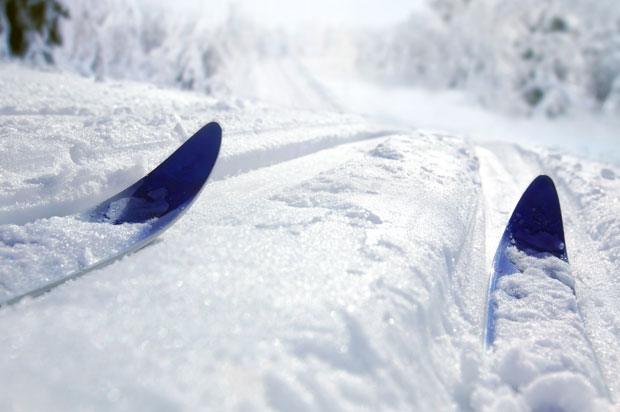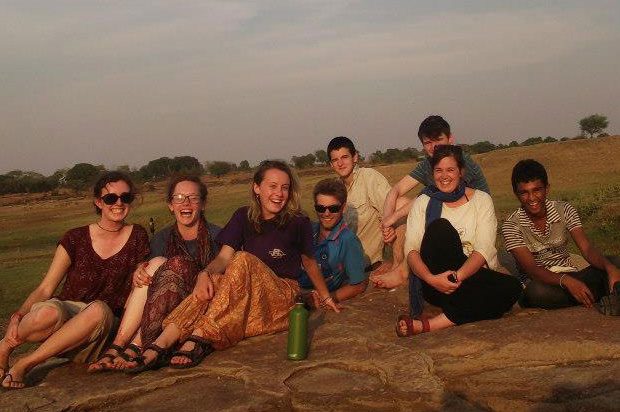Working in ski resorts
Gagging to do nothing but ski and party? Unless you're minted, you'll need to work to do a ski-season, so let us smooth the way.

I'm on yellow snow look-out duty.
Getting a ski resort job
With so many types of jobs and ski tour operators out there, it’s hardly surprising that so many people’s dreams of working in a ski resort don’t ever make it to the slopes. Narrow your choices by selecting 10-20 ski tour operators and applying to them in writing with your CV. Emphasise your relevant skills and talents in your covering letter, but always make it clear that you’re willing to do anything. “Always focus on the positive reasons why you’re applying,” advises Victoria Pybus, author of Working in Ski Resorts. “Say that you have always wanted to work in the travel industry, or that you are hoping to gain new skills for future job prospects.”
When to apply for ski work
It’s obviously better if you can line something up before you go – if you wait until the last minute you will have to work harder at finding something. Don’t panic if your bright idea of working a ski season only hits you halfway through the season itself – according to Victoria Pybus, you still have a few options left.
“There is a high drop out rate in the first couple of weeks and also around Christmas when people start thinking: ‘sod it, I’m not going to spend my Christmas slaving over a hot stove’,” she says. “Companies often have panics on around these times, so keep ringing around and pick the big companies who are likely to have more jobs left. Alternatively, just head straight to the actual resort. Lots of people do leave around these times, and then it’s just a question of luck when you’re out there.”
This is exactly what Fergus Mitchell did. “I was lucky that I had friends in the resort who gave me part-time work in return for cash or food,” he says. “After about three weeks I was in a bar when a guy came in and told his mates how he had just quit his job as a barman. I went straight to where he had been working and after a trial shift they offered me the job for the rest of the season.”
What experience do I need?
It’s best if you have direct experience of working in a particular field, but it’s not completely necessary. If you don’t have any experience, think about the skills you have developed in your personal life, such as cooking dinner parties for friends, and make sure that you highlight them on your CV.
Esther Bott was a chalet hand with her boyfriend Steve in a resort in France. They were responsible for a 12-person chalet between them, which meant preparing and cooking three meals a day and doing all the cleaning. “It’s better if you can run your own chalet rather than being a general skivvy, but that’s often all that’s available if it’s your first season and you have no experience,” she says. “I was given the job because I was a bit older and because I had cooking experience. It also went in our favour that we were a couple because they generally want two people who know each other to take on a whole chalet.”
How much skiing will I get to do?
So, you’ve bagged a job, now all you’ve got to do is turn up and have fun, right? Err, wrong actually. Most companies will expect to get their money’s worth out of you, so it’s up to you to get everything done and still have the time to ski and the money to party. “You have to be very organised,” explains Victoria. “During their first season people are learning about how to prepare everything as much in advance before they go out on the slopes. By the second season they can really get it down to a fine art; they can get all their work done and get time skiing.”
Esther and Steve learnt quickly and were soon preparing enough in advance to get as much skiing time as possible. “We didn’t cut corners, but we got quicker at cleaning and cooking and we also realised that we could cheat on one thing a day – you just get to learn little tricks,” says Esther. “The best bit was definitely getting everything organised enough to get out and do loads of skiing.”
Each job comes with different hours and pressures, so consider how you will balance your work responsibilities, social life, and time on the slopes. Fergus’ job as a barman meant he could ski until he started work at 4pm but then he was working all night while others were out partying. “My expectations were of the freedom of the mountains and parties ’till the sun rose. It has to be said that for all my idealist dreams I wasn’t far too off the mark – I just failed to envisage the 60 hour working weeks!”
So there you have it – ask yourself what’s most important to you and which job will give you the most freedom, without being unrealistic about the amount of work you’ll have to do, and you should have a ball. As Esther says: “You basically just live it up, don’t earn very much money and don’t get much sleep, but I’d definitely recommend it.”
Picture of skis by Shutterstock.
Next Steps
- Chat about this subject on our Discussion Boards.
- Need help but confused where to go locally? Download our StepFinder iPhone app to find local support services quickly.
By Hannah Jolliffe
Updated on 29-Sep-2015
No featured article












